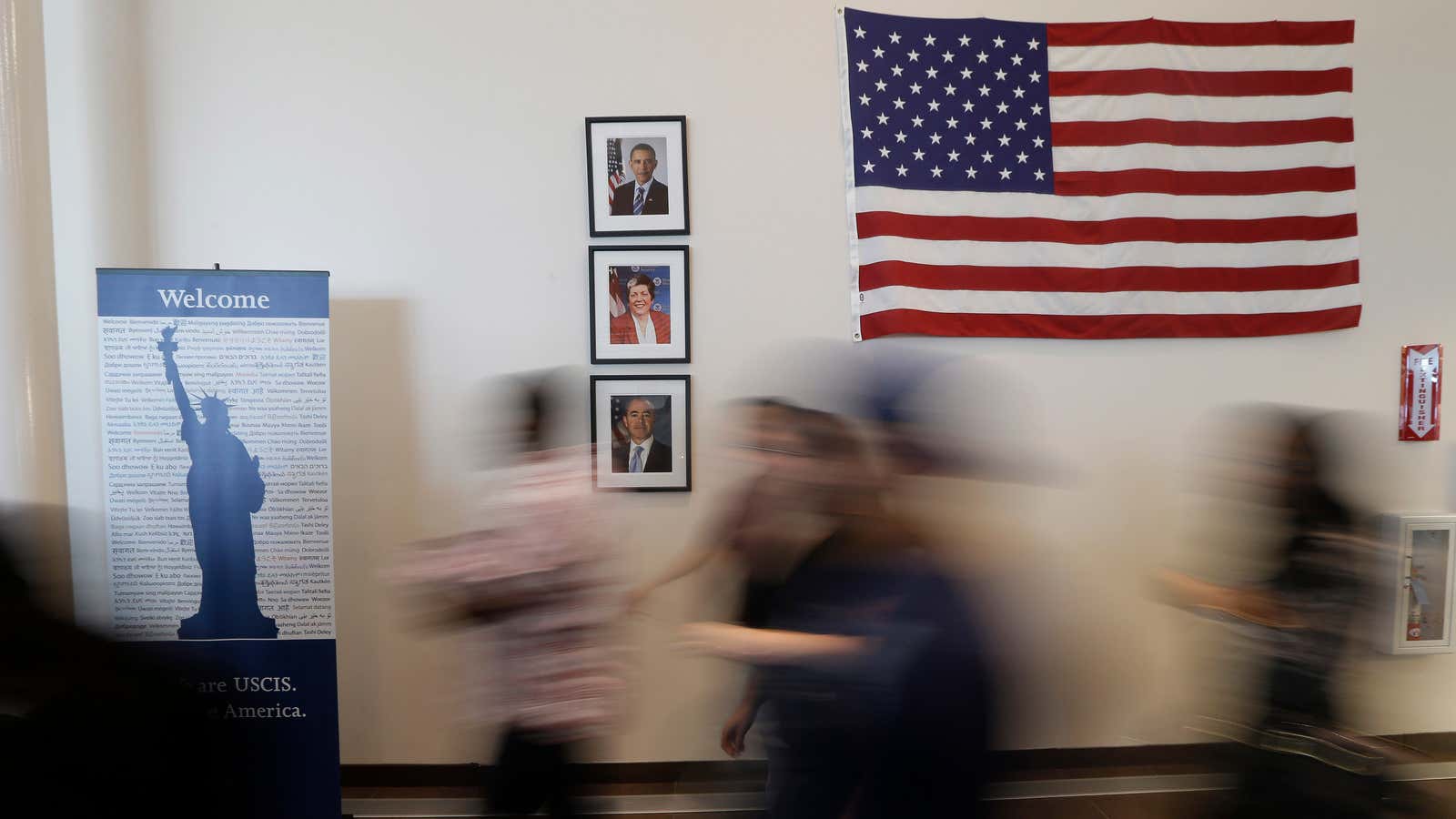Yesterday, US legislators seemed to coalesce around a plan to fix America’s immigration system. Today, President Obama announced his own principles for reform, and there wasn’t too much difference in the broad strokes. Obama also said he wouldn’t introduce his own bill as long as bipartisan legislation moved forward, holding his plan as a secondary option but deferring to Congress for now.
“The architecture here that we’re talking about here is similar to what is being discussed in the Senate,” an Obama administration official told reporters after the event. “That gives us a great deal of encouragement that this is something that we’re going to be able to get done and especially be able to get done quickly.”
That includes a pathway to citizenship for undocumented immigrants and new investments in border security, but Obama outlined a few other priorities that weren’t in the Senate framework and may not be included in the House version, either:
- Same-sex partners should be treated the same as heterosexual couples when it comes to family rules around immigration, a major point for Democrats but one that will not appeal to socially conservative Republicans.
- There’s no trigger mechanism linking investments in border security to what Obama calls “earned citizenship” or the kind of agricultural guest-worker program proposed by the Senate framework.
- Like the senators, Obama endorsed giving visas to foreign students who earn advanced degrees in science or mathematics in the US, but he also added a few other categories of visa expansion: a “start-up” visa for entrepreneurs to come to the US start businesses; for investors; and for skilled workers to join federal national security science and technology laboratories.
- Obama also endorses cutting the backlogs of family-sponsored immigrants waiting for entry by issuing more visas than usual and raising the caps on immigration from any one country from 7% to 15%, which would increase the number of highly-skilled workers entering the country by allowing more green cards to be issued to immigrants from countries with long backlogs of applicants.
While there’s still plenty of room for agreement, particularly on visas for highly-skilled workers, these are some early places to watch for conflict between the president and Congress as this important legislation moves forward.
More Context:
- Here is the White House fact sheet
- Border security has significantly increased since 2007, the last time immigration reform was on the table.
- Could universities use the advanced degree green cards to run a money-making arbitrage scheme?
